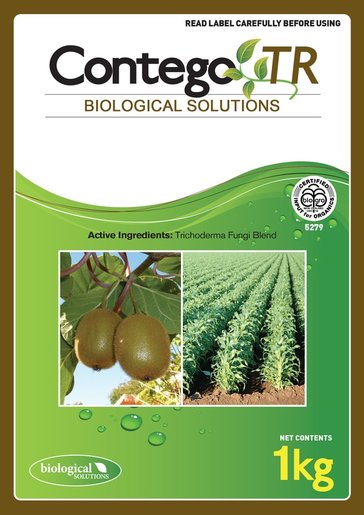|
Trichoderma viride is a fungus which is present in substantial numbers in nearly all agricultural soils and in other environments such as decaying wood.
Among their other activities, they grow tropically toward hyphae of other fungi, coil about them in a lectin-mediated reaction, and degrade cell walls of the target fungi. This process (mycoparastitism) limits growth and activity of plant pathogenic fungi. Mycoparasites produce cell wall-degrading enzymes, which allow them to bore holes into other fungi and extract nutrients for their own growth. The fungicidal activity makes T. viride useful as a biological control against plant pathogenic fungi. It has been shown to provide protection against such pathogens as Rhizoctonia, Pythium and even Armillaria. It is found naturally in soil and is effective as a seed dressing in the control of seed and soil-borne diseases. |


